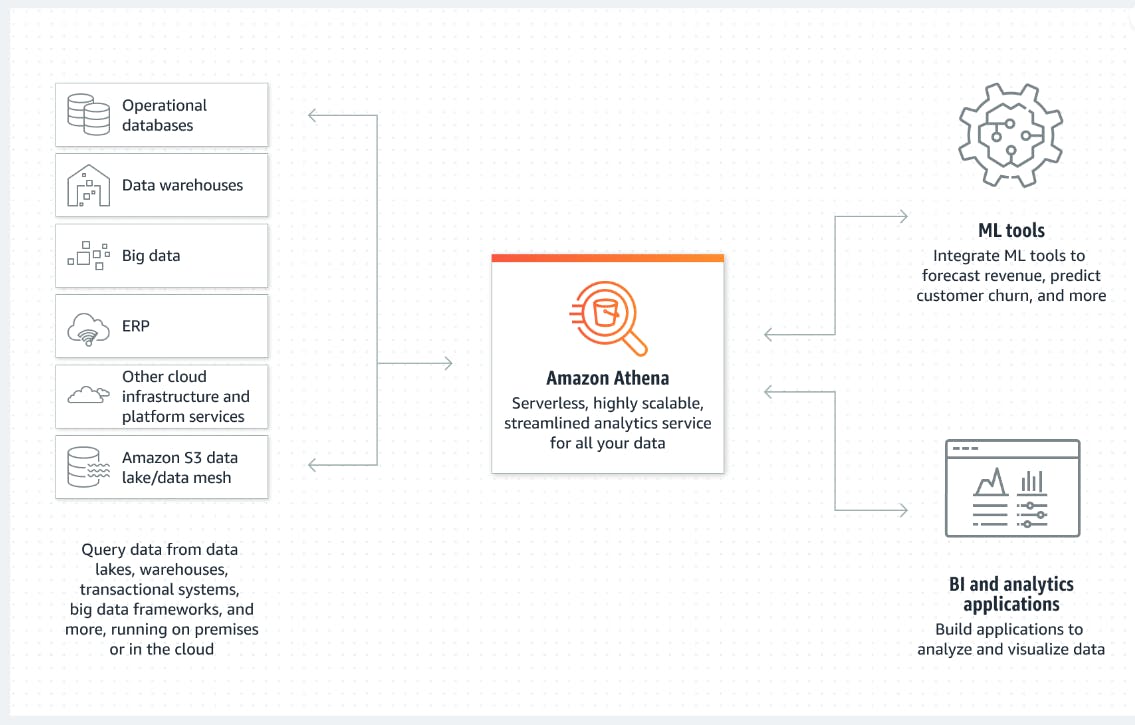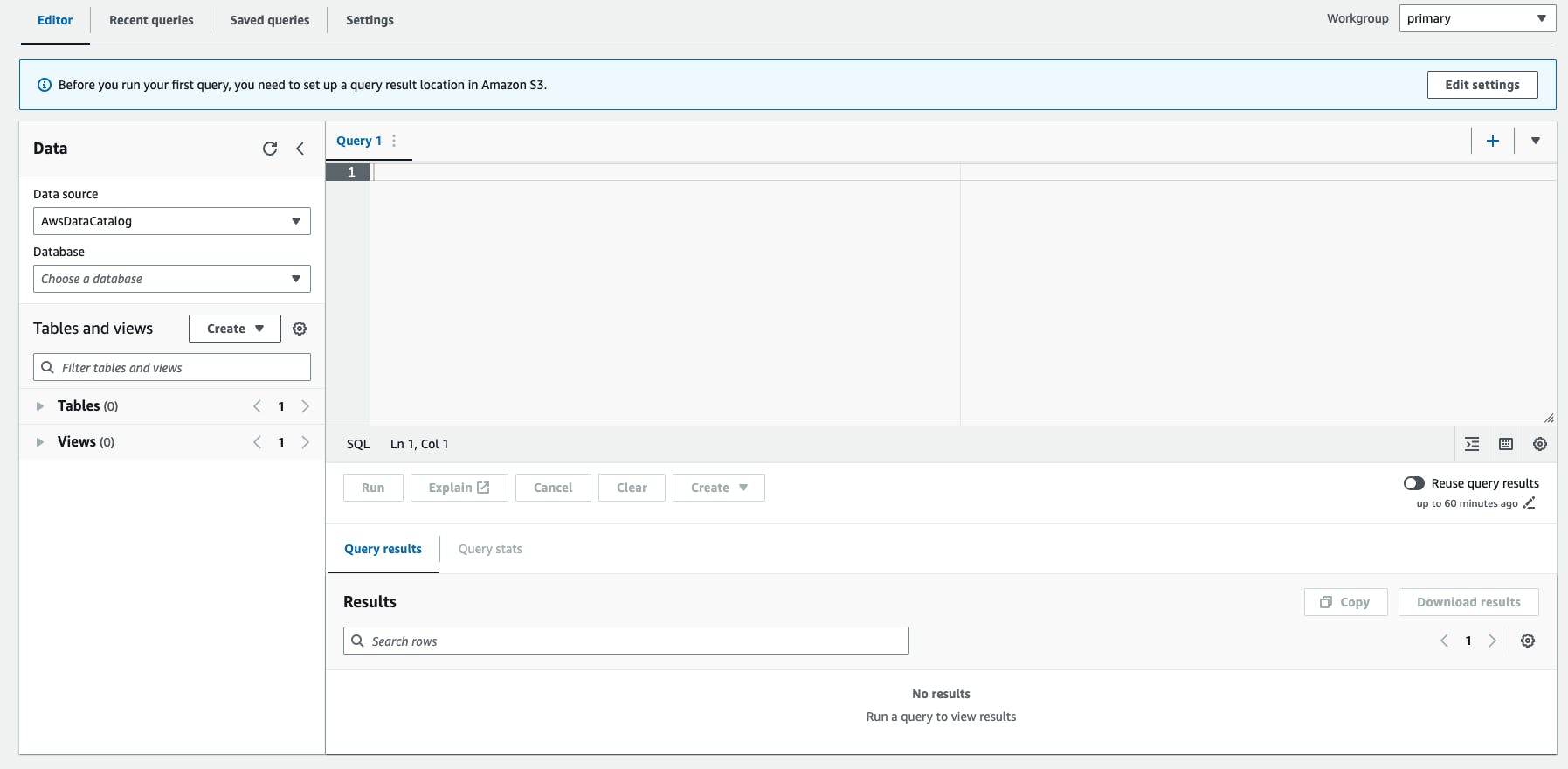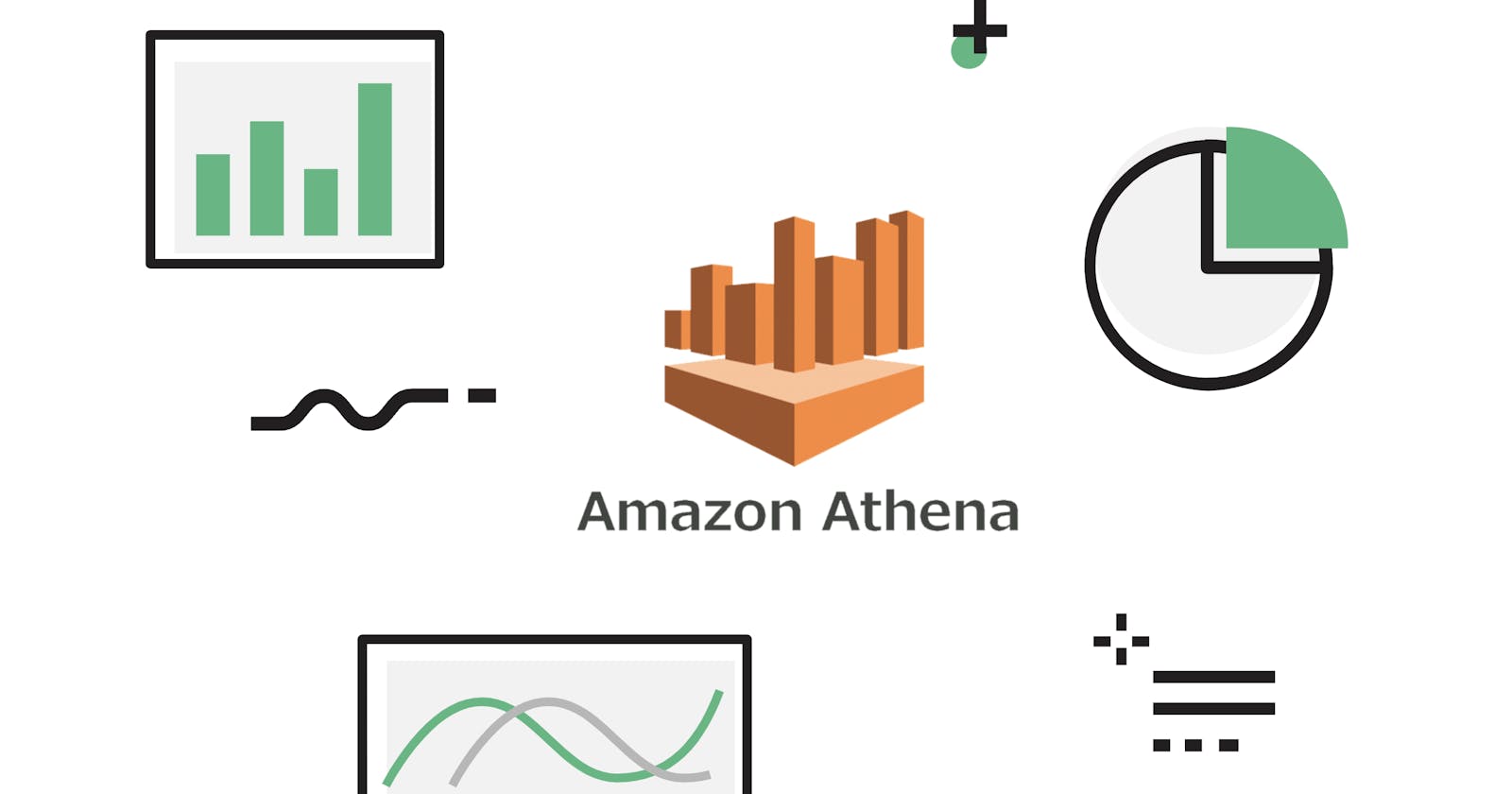Introduction to Amazon Athena: A Fast and Cost-Effective Serverless Query Service
Harnessing the Power of Amazon Athena: Accelerate Data Analysis and Optimize Costs with Serverless SQL Queries
Amazon Athena is a serverless, interactive query service that makes it easy for me to analyze data in Amazon S3 using standard SQL. With its speed, cost-effectiveness, and user-friendly interface, Athena has become my go-to solution for efficient data exploration and analysis.
How Athena Works:
Athena leverages Presto, a powerful open-source distributed SQL engine, to execute queries on data stored in my Amazon S3 buckets. As a serverless service, Athena eliminates the need for me to manage any infrastructure. I simply point Athena to my data in S3, define the schema, and start querying.
Key Benefits of Using Athena:
Blazing Speed: Amazon Athena excels in processing vast amounts of data(like petabytes of data) within seconds. Athena's performance remains impressive, ensuring quick insights and analysis regardless of the data size.
Cost-Effectiveness: Athena's pricing structure follows a pay-per-query model. I am only billed for the queries I execute, optimizing cost efficiency. This approach is especially advantageous for me as I have varying query workloads.
Ease of Use: Athena is designed to be user-friendly, enabling me to use standard SQL to query my data. This familiarity eliminates the need for extensive training or specialized skills, making it accessible to users like me.
Versatile Data Support: Amazon Athena empowers users to run queries on a wide range of data types, including structured, semi-structured, and unstructured data. This flexibility allows for seamless analysis of diverse datasets.
Flexible Data Compatibility: Athena supports multiple data formats, including CSV, JSON, Apache Avro, Parquet, and ORC. This compatibility enables users to work with their data in the format that best suits their needs, enhancing convenience and flexibility in data analysis.
Use Cases for Athena:

Data Warehousing: Athena allows me to create a robust data warehouse on Amazon S3. By defining schemas and running queries, I can efficiently organize and retrieve my data.
Data Analysis: With Athena, I can analyze large datasets residing in Amazon S3. By leveraging its querying capabilities, I can gain valuable insights, perform complex calculations, and uncover patterns within my data.
Reporting: Athena enables me to generate comprehensive reports based on data stored in Amazon S3. By querying relevant data, I can extract the necessary information and generate customized reports to facilitate decision-making.
Visualization: Integration between Athena and Amazon QuickSight, a data visualization service, allows me to create captivating and insightful visual representations of my data. This integration further enhances my data exploration and analysis capabilities.
Getting Started with Athena:
To embark on your Athena journey, you need to create an AWS account. Once registered, you can proceed by creating an Athena table. This process entails specifying the S3 bucket that holds your data, defining the schema, and specifying the data format.

After setting up an Athena table, you can start querying your data through multiple avenues such as the AWS Management Console, the AWS Command Line Interface (CLI), or the Athena API.
Pricing Details for Athena:
Athena's pricing model is based on a pay-per-query structure. The cost of each query is determined by the amount of data scanned during its execution. For instance, scanning 1 TB of data incurs a charge of $5. It is worth noting that failed queries and Data Definition Language (DDL) queries, such as table creation or view definition, do not incur charges. However, canceled queries are charged for the data already scanned.
Conclusion:
Amazon Athena offers a robust and efficient solution for analyzing data stored in Amazon S3. Its exceptional speed, cost-effectiveness, and ease of use make it a preferred choice for businesses seeking to derive valuable insights from their data. Whether you're looking to create data warehouses, perform in-depth analysis, generate reports, or visualize data, Athena provides the necessary tools and capabilities. Embrace the power of Athena and uncover the hidden potential within your datasets.
I hope this article has provided you with some introduction to Amazon Athena. In the upcoming section of this series, we will do some hands-on and get a better understanding of AWS ATHENA. :)

